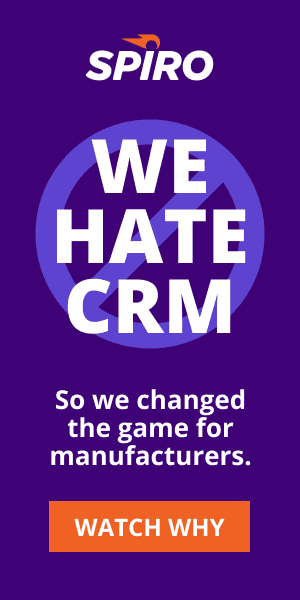Salespeople: Your ‘Likeability’ Matters And What To Do About It
When I started my career in sales, I was mystified by the notion that the salesperson was a key ingredient in the buyer’s decision. At the time I believed that factors like the prospect’s budget and the actual product would influence 90% of the sale and the sales guy would maybe influence that final 10%. (And maybe what awesome sales tools they used, like Spiro’s sales automation CRM, mattered a bit too.)
That was all flipped around when I closed one of my first major sales to a billion dollar computer maker. The buyers at the company admitted to me that they gave me the business because they liked and trusted me. This blew me away because at my core I still believed they bought primarily because of the product.
Sales As Psychology
Does it matter that your prospects like you? Sure it does. If your prospects don’t like you they probably don’t want to talk with you, and if they don’t want to talk with you then it is going to be hard to make the sale.
I once had a client in the insurance business who really didn’t like their sales rep from a local software company. They relied on the software and thus they needed to work with him but they tried to minimize their communication as much as possible. This lack of connection between the company and the sales rep made the rep’s job very difficult. While he made the initial sale, he was never able to forecast the customer and eventually had to move to other accounts.
Contrast that story with one of the top sales reps at my first company. She sold to the oil and gas industry – the old boy’s network if there was one. But her persistence and sales skills moved her up the ladder because people genuinely liked her. When we needed a deal to come through this quarter and not next, she could make it happen. She was able to leverage her great relationships and contacts to push deals through.
Why Emotional Purchasing Is Rational Behavior
It took me a long time to come to this conclusion, although I have now decided that customers and prospects making buying decisions on the likability of their sales reps makes sense. And you should learn to be more likeable.
Here’s why:
Lack of perfect information – When someone buys something, they are always making a leap of faith. They never have perfect information about the product, regardless of how many meetings they have attended or demos they have sat through before ordering.
Reciprocal liking – Psychologists define this as “the phenomenon of people tending to better like those people who like them. It reflects the notion that people feel better about themselves knowing that they are likable and enjoy the company of those who give them positive feelings.” In simple terms ‘if they like you, you will probably like them.’
Support – Your customers and prospects know that when they buy something, often they’re going to need help or support post-sale. If you like them, they’re more likely to get the support they need if anything doesn’t work out the way it should.
When you make a decision and don’t have all the information – which is always – there is a somewhat irrational process going on. As humans, we try to mitigate this by working with people we like.
What Can You Do To Be More Likeable?
At the core sales is about people and given that you have a career in sales I will hope for your sake that you are a ‘people person.’ But being a people person doesn’t ensure that people will like you. Here are a few other tips on how to increase your likability.
Do your research. Before you ever get on a call with a prospect do your research up front. Study the prospect online and learn everything you can about them. When a client sees you did your homework and are prepared for the meeting then it is a sign that you are a professional and will take this work seriously.
Focus on the customer. Don’t spend your sales calls focusing on boasting and blabbering about your product. Instead spend the time listening to your prospect and asking questions about their needs and their problems. Prospects don’t want to hear your canned sales pitch, they want to have a human conversation and learn how you can help them fix their problems.
Make promises and deliver. Tell the customer you will follow up with them next week, and then do it. (Use Spiro to help remind you to make that important follow up call.) Tell them that you will send over more information, and then do it. Make promises to the customer and then deliver. Every time you do this, you build up trust and prove that you are a dependable person.
These are just a few of the many things you can do to be more likeable and as we already discussed likeability is essential to success in your sales career. Take the time to build genuine relationships with your clients and you will be grateful you did.
Photo courtesy of Flickr user Alan Turkus.

